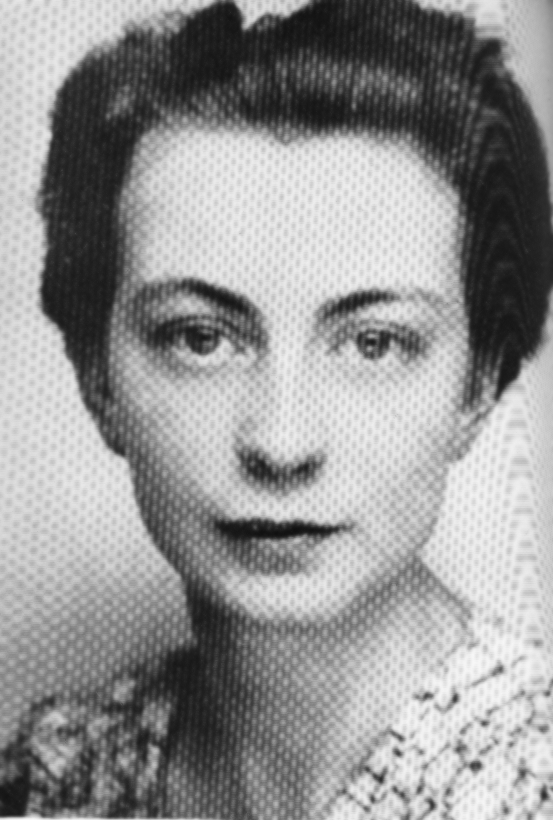 The WW2 escape route known as the Comet line (Le Réseau Comète), inspired the 1970s BBC television series, Secret Army.
The WW2 escape route known as the Comet line (Le Réseau Comète), inspired the 1970s BBC television series, Secret Army.
The line, so named because of the speed needed to whisk stranded airmen down through occupied France to safety, helped hundreds of allied soldiers and airmen to escape from occupied France.
The original route started in Brussels, with several main routes south through occupied France and on to the western Pyrenees into Spain.
Escapees were moved via a chain of safe houses, leading ultimately to the “last house” in the Basque village of Urrugne, where Basque guides led by a giant known as Florentino, accompanied them across the mountains.
Courageous Belgium lady, Andrée de Jongh, (codename Postman, nickname “Dédée”) was one of the principal creators of the Comet line.
With support from MI9, and famed Colditz escapee Airey Neave, she helped 400 Allied soldiers to escape from Belgium to Gibraltar, personally accompanying more than 118 airmen over the rugged Pyrenees herself.
In 1943, the line was betrayed and Dédée and others were captured at the house in Urrugne.
Under Gestapo torture, she admitted to being the leader of Le Reseau Comète, but they did not believe her – how could this petite, young girl have possibly set up such a massive working network? She was sent to Mauthausen and Ravensbruck concentration camps until, desperately ill and undernourished, the allied armies liberated her in 1945.
After the war, she was honoured by Britain, Belgium and America and made a Belgian countess in 1985.
Escaped airmen described her as “… always smiling and brimful of enthusiasm” and “….the force, the power and the inspiration that brought us from Belgium to Spain.”
Andrée de Jongh died in Brussels on 13th October 2007
|
The incredible story inspired author, Kristin Hannah, who wrote The Nightingale in 2015. The book was a n° 1 New York Times bestseller, the Wall Street Journal’s Book of the Year… and, perhaps most prestigious of all, rave review from P-O Life readers. |


The story of those who joined Comète to actively help shot-down Allied aircrew to return to England is truly inspirational. Unarmed, untrained and acting alone, they had to be constantly on the ‘qui vive’ and alert to suspicious activity if they were to survive.
The hard truth is that Andrée De Jongh warned anyone who wanted to join that they could expect to operate for no longer that 6 months before being arrested by the German security services. And it must be borne in mind that the Germans did not accept that the provisions of the Geneva Convention applied to those helping evading airmen.
Those who; despite that warning, went on to help were truly the bravest of the brave.
In a number of ceremonies in September, we first commemorate those brave men and women who stepped forward in the dark days of WWII when an Allied victory seemed a distant and unlikely prospect. We then take two days to walk over the exact same paths across the Pyrenees that the Comète guides used to lead the evading aircrew to freedom.
We generally have around 100 participants (from many countries) and the weekend is addictive. I did my first long Comète weekend in 2010 – and every one since then.
Further details will be posted on our bi-lingual blog shortly.
https://cometepaysbasque.blogspot.com/
Hope to see you there!
Oh, what a wonderfully inspiring story. And such a beautiful, calm woman, leading these men to safety. I remember The Nightingale, wonderful book. Thank you for including this in this issue. Our part of the Pyrenees had so much to offer for eventual safety during the war…
Sorry: COURAGEOUS…
These incredibly courageuse men and women make us feel very humble indeed.
Not only did they fight, and many of them, give their lives for their country, but they withstood torture to protect their comrades.
Those of us who are now in the later stages of life will remember our parents disappearing for years, having no news of them. My Dad was a Nazi-hunter & we only learned of his mission about 25 or 30 years later.
I read somewhere: “If you speak English (or French), thank a solder !”